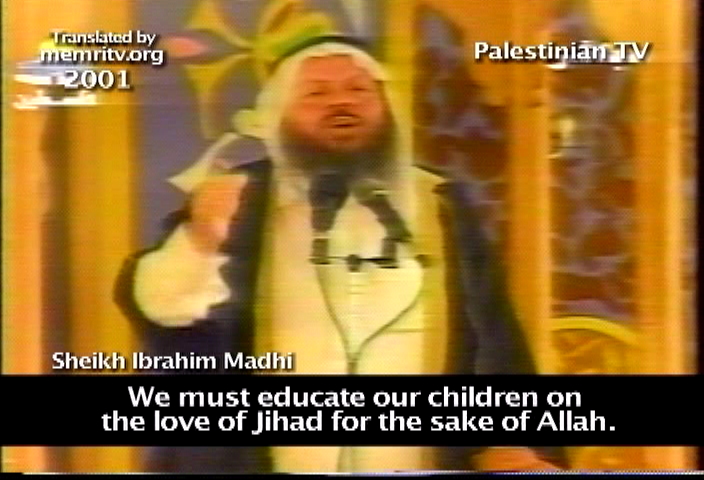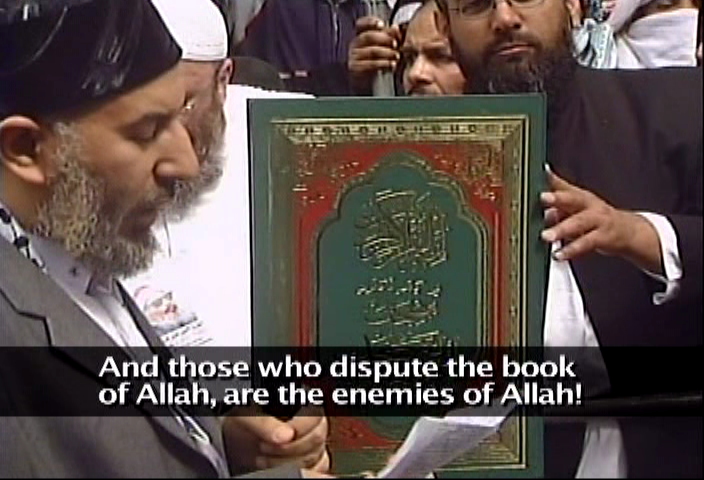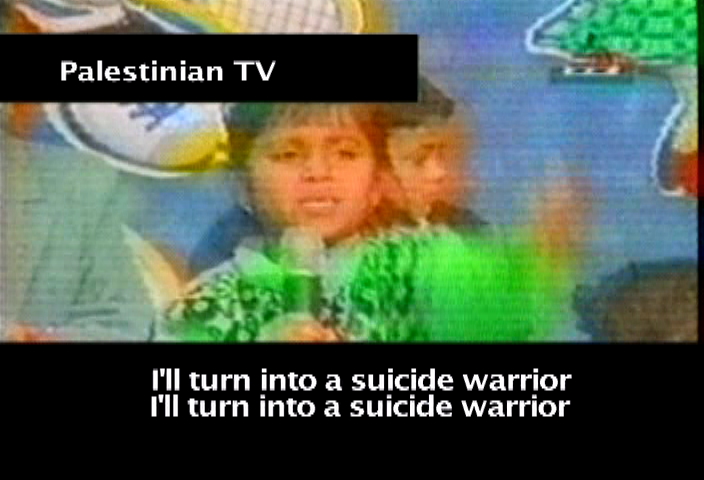Obsession's Translation Errors
by Rabbi Haim Dov Beliak, JewsOnFirst.org, November 2, 2008
Contents Of This Special Section On Obsession

Obsession purports to be an insider's exposé of trends in Arab and Muslim cultures of which Americans who do not understand either Arabic or Farsi would, ordinarily, be unaware. For that to be the case, the translations of speeches and text, from non-English languages into English, would have to meet high standards of accuracy. Furthermore, to be useful for people who are unfamiliar with the context in which these speeches are made, some background ought to be provided.
In an ongoing project, a professional translator, who worked as an Arabic-English translator for GM, PBS and other professional and cultural companies and agencies, is examining the subtitled speeches in Obsession for simple accuracy and for contextual sense. This translator has already found three key instances of misleading or inaccurate translations that give the viewer a skewed impression, either of the plain sense of what is said or of what it means in context.
Obsesssion has injected itself into a serious controversy over the concept of jihad: what the words means and how it is used. Jihad is a traditional Islamic concept that means struggle and, historically, has been used to indicate an inner spiritual battle to overcome one's faults and be a better person. Jihad has also been used to mean physical fight and is employed by violent fundamentalists to mean just that. It is absolutely crucial then, to understand how the word jihad is being used at any one time.
Here is a serious case of mistranslation that creates a false picture of how the work, jihad is being used. In Obsession, we are provided only the following subtitle: "We must educate our children on the love of Jihad for the sake of Allah. And the love of fighting for the sake of Allah." First of all, the English subtitle begins well into the speech in Arabic. Here is a longer version of what the Sheikh said: "We must establish/live our lives based on the religion of God, glorious and exalted, and on the law of God, glorious and exalted. We must raise our children on the love of spiritual struggle (jihad) toward the way of God, the love of struggling (jihad) along the path of God." In the context of the longer speech, jihad, here, means spiritual struggle.

Here, a cleric is shown holding a copy of the Koran, the Holy Scripture of Islam. The subtitle tells us that he is saying, "And those who dispute the book of Allah are enemies of Allah."
But our translator says that this is inaccurate. A better translation would be: " And those who desecrate the book of Allah, or the revelation of God, are both treacherous and uncivilized."
Many of us would agree with that description of anyone who makes a point of fouling someone else's holy scriptures. But there is more. This statement was made in the context of reports that interrogators at the US facility at Guantanemo Bay made a practice of desecrating Korans in front of detainees. It is in objection to such practices that the statement was made.

Here is a little girl reciting a poem, that, we are told, proclaims her ambition to be a suicide bomber.
We are told that she is saying, "When I wander (journey or arrive) into the entrance of Jerusalem I'll turn into a suicide warrior I'll turn into a suicide warrior. In the battledress In the battledress In the battledress."
That truly would be horrible. However, according to our translator, what the girl says is, "If I enter the door to Jerusalem, I will turn into a fighter for Palestine, in uniform, in uniform." Many of us would still be uncomfortable with the idea of such a small child expressing such fierce aspirations, but there is an enormous difference between wanting to grow up to be a soldier in uniform for one's country, for the Palestinian Authority for example, and wishing to be a suicide bomber (such bombers, of course, wear civilian clothes in order to blend in).